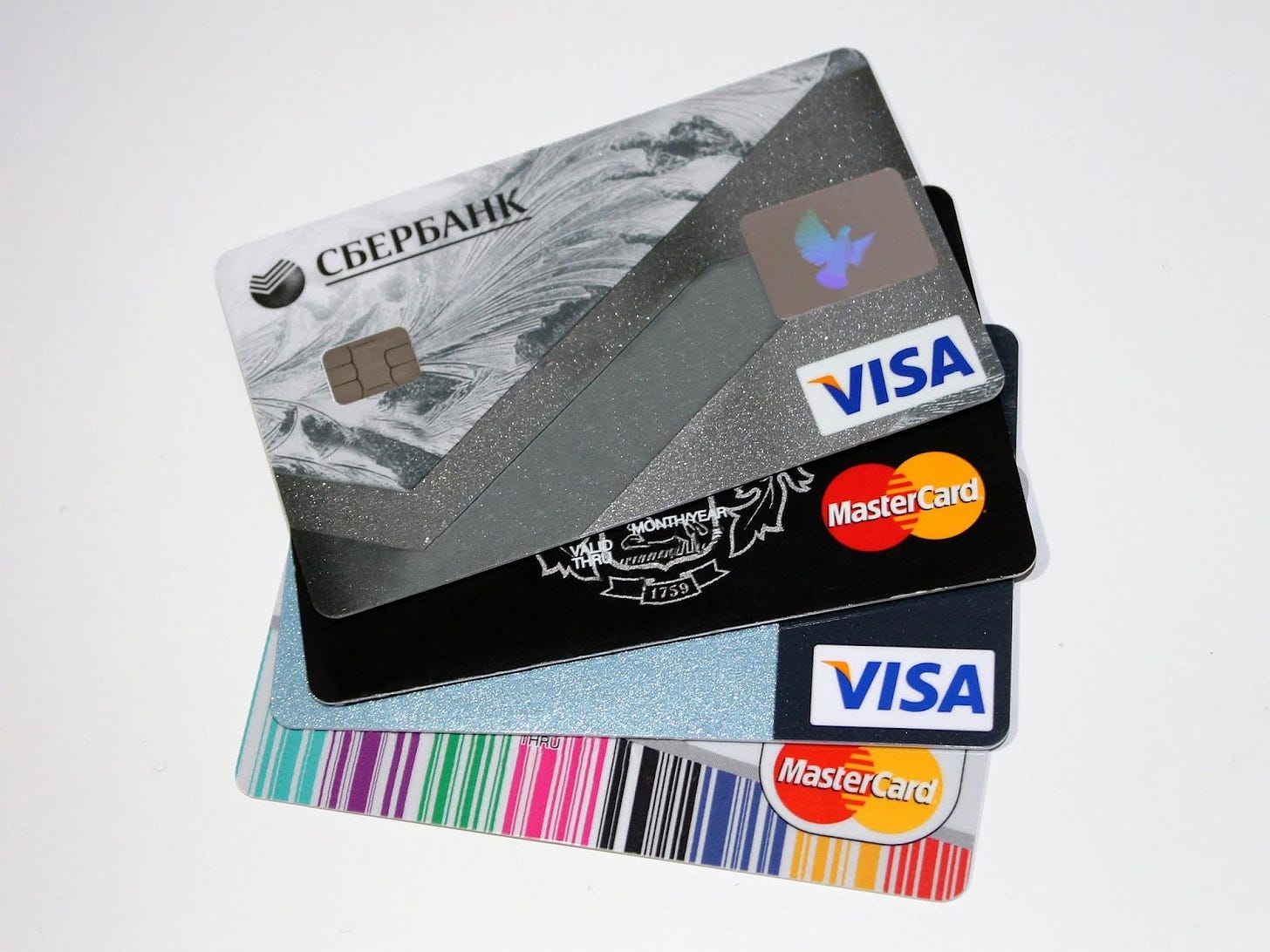This is my 2nd installment in the series from the article, 8Tips To Purchase Your Dream Home. We will be discussing Tip 2: Know Your Credit Score. I am mainly focusing on the first-time would-be homeowner who would begin his homeownership as a tenant-buyer, a kind of homeowner in training. However, these tips will be helpful for anyone who wants to purchase a home using creative techniques.
Having a good credit score is crucial for your financial well-being. It can impact your ability to obtain loans, credit cards, and even rent an apartment. A good credit score can also result in lower interest rates on loans, which can save you thousands of dollars over time.
Your credit score is a reflection of your creditworthiness, which is determined by your credit history. It takes into account factors such as your payment history, credit utilization, length of credit history, and types of credit. A good credit score is typically considered to be 700 or above, while a score below 600 is considered poor.
Maintaining a good credit score requires responsible credit management. This includes paying your bills on time, keeping credit card balances low, and avoiding opening too many credit accounts at once. By doing so, you can establish a positive credit history and increase your chances of being approved for credit in the future.
Understanding Credit Scores
Your credit score is a three-digit number that represents your creditworthiness. It is a measure of how likely you are to repay your debts on time. Lenders use your credit score to determine whether or not to approve your loan application and what interest rate to offer you.
There are two main credit scoring models: FICO Score and Vantage Score. FICO Score is the most commonly used scoring model, while Vantage Score is gaining popularity. Both models use similar factors to calculate your credit score, such as payment history, credit utilization, length of credit history, types of credit used, and new credit accounts.
Credit scores range from 300 to 850. The higher your score, the better your creditworthiness. A score of 700 or above is generally considered good, while a score below 600 is considered poor. However, different lenders may have different credit score requirements, and what is considered a good score may vary depending on the lender and the type of loan you are applying for.
Credit bureaus, such as Experian, Equifax, and TransUnion, collect and maintain your credit information, which is used to calculate your credit score. They use a credit score system to generate your credit score based on the information in your credit report. Your credit report includes information about your credit accounts, payment history, and other financial activities.
It is important to regularly check your credit score and credit report to ensure that the information is accurate and up-to-date. You can get a free copy of your credit report once a year from each of the three credit bureaus. If you find any errors or inaccuracies, you can dispute them with the credit bureau to have them corrected.
Having a good credit score is important because it can affect your ability to get approved for loans, credit cards, and other financial products. It can also affect the interest rates and terms that you are offered. By understanding credit scores and maintaining a good credit score, you can improve your financial health and increase your chances of getting approved for credit in the future.
Access to Credit
One of the most significant benefits of having a good credit score is that it makes it easier for you to access credit. When you have a good credit score, lenders are more likely to approve your loan applications and offer you better interest rates. This means that you can borrow money at a lower cost, which can save you thousands of dollars over the life of the loan.
Better Insurance Rates
Your credit score can also affect your insurance rates. Insurance companies use credit scores to determine the likelihood that you will file a claim. People with good credit scores are seen as less risky and are therefore offered lower insurance rates.
Ability to Rent an Apartment
Landlords often check credit scores before renting out an apartment. A good credit score can increase your chances of being approved for an apartment lease. If you have a poor credit score, landlords may see you as a risky tenant and may require a higher security deposit or reject your application altogether.
Better Job Opportunities
Some employers check credit scores as part of the hiring process. A good credit score can demonstrate that you are financially responsible and may make you a more attractive candidate for certain jobs.
In summary, having a good credit score is important for accessing credit, getting lower interest rates, better insurance rates, being able to rent an apartment and even getting certain job opportunities. By maintaining a good credit score, you can save money and improve your financial well-being.
Credit Scores and Financial Opportunities
Your credit score is a reflection of your creditworthiness and financial responsibility. Having a good credit score can open up a world of financial opportunities, while a poor credit score can severely limit your options. In this section, we’ll explore how your credit score affects various financial opportunities.
Credit Cards and Credit Limits

Credit card companies also use your credit score to determine your creditworthiness. A good credit score can help you get approved for credit cards with higher credit limits and better rewards programs. Additionally, credit card companies may offer you lower interest rates if you have a good credit score.
Factors Affecting Credit Scores
Your credit score is a three-digit number that represents your creditworthiness. It is used by lenders and financial institutions to determine your ability to pay back loans and credit. Your credit score is determined by several factors, including payment history, credit utilization, length of credit history, credit mix, and new credit.
Payment History
Your payment history is the most critical factor affecting your credit score. It accounts for 35% of your credit score. Your payment history shows how often you make payments on time, and any missed or late payments can negatively impact your credit score.
Credit Utilization
Credit utilization is the amount of credit you are using compared to your credit limit. It accounts for 30% of your credit score. High credit utilization can indicate that you are relying too much on credit which can negatively impact your credit score.
Length of Credit History
The length of your credit history is how long you have been using credit. It accounts for 15% of your credit score. A longer credit history can show that you have a more established credit history and can positively impact your credit score.
Credit Mix
Credit mix is the different types of credit you have, such as credit cards, loans, and mortgages. It accounts for 10% of your credit score. Having a mix of credit can show that you can handle different types of credit and can positively impact your credit score.
New Credit
New credit is the number of new credit accounts or credit applications you have recently opened. It accounts for 10% of your credit score. Opening too many new credit accounts or applying for too much credit in a short period can negatively impact your credit score.
Overall, your credit score is determined by several factors, and it is essential to maintain a good credit score to access better credit options. It is recommended that you regularly check your credit reports from the three major credit bureaus and monitor your credit card balances and debts.
Additionally, avoid applying for too much credit at once, as this can result in a hard inquiry on your credit report and negatively impact your credit score.
Improving and Maintaining Good Credit Scores

If you’re looking to improve your credit score, there are a few steps you can take. Building credit, monitoring your credit, and managing your finances are all important factors in maintaining a good credit score.
Building Credit
One way to build credit is to apply for a secured credit card. This type of card requires a cash deposit, which serves as collateral in case you default on your payments. Another option is to become an authorized user on someone else’s credit card. This allows you to build credit without taking on the responsibility of making payments.
Experian Boost is another tool that can help you build credit. This service allows you to add your utility and telecom bills to your credit report, which can increase your credit score if you have a history of on-time payments.
Monitoring Credit
Monitoring your credit is important to ensure that there are no errors or fraudulent activity on your credit report. You can obtain a free credit report from each of the three credit bureaus (Equifax, Experian, and TransUnion) once per year. You can also sign up for credit monitoring services, which can alert you to any changes or suspicious activity on your credit report.
Managing Finances
Managing your finances is crucial to maintaining a good credit score. One important factor is your credit utilization ratio, which is the amount of credit you’re using compared to your credit limits. It’s recommended to keep this ratio below 30%.
Making your monthly payments on time is also important. Late payments can negatively impact your credit score and result in late fees and interest charges. Creating an emergency fund can help you avoid missing payments in case of unexpected expenses.
In addition, it’s important to keep an eye on your available credit and credit limits. Maxing out your credit cards can hurt your credit score, even if you make your payments on time.
Remember, improving and maintaining a good credit score takes time and effort. By building credit, monitoring your credit, and managing your finances, you can increase your chances of achieving a good credit score and enjoying the benefits that come with it.
Conclusion
Having a good credit score is crucial for your financial health. It affects your ability to get approved for loans, credit cards, and even rental applications. Your credit score is a reflection of your creditworthiness and lenders use it to determine the risk of lending to you.
By maintaining a good credit score, you can enjoy benefits such as lower interest rates, higher credit limits, and better loan terms. This will save you money in the long run and help you achieve your financial goals faster.
To improve your credit score, you should focus on paying your bills on time, keeping your credit utilization low, and monitoring your credit report regularly. You can also consider opening a secured credit card or becoming an authorized user on someone else’s account to help build your credit history.
Remember, your credit score is not something that can be fixed overnight. It takes time and effort to improve, but the rewards are worth it. By staying on top of your finances and maintaining a good credit score, you can secure a better financial future for yourself and your family.
Frequently Asked Questions

If you’re new to the world of credit scores, you might have a few questions. Here are some of the most frequently asked questions about credit scores:
What is a credit score?
Your credit score is a number that represents your creditworthiness. It’s based on your credit history, which includes things like your payment history, the amount of debt you have, and the length of your credit history. Lenders use your credit score to determine whether or not to lend you money, and at what interest rate.
Why is a good credit score important?

Having a good credit score is important because it can help you get approved for loans and credit cards at better interest rates. It can also help you get better insurance rates and even help you get a job. On the other hand, a low credit score can make it harder to get approved for loans and credit cards and can result in higher interest rates and fees.
What is a good credit score?
A good credit score is generally considered to be 670 or higher. However, different lenders may have different criteria for what they consider to be a good credit score. The higher your credit score, the better your chances of getting approved for loans and credit cards, and at better interest rates.
How can I improve my credit score?
There are several things you can do to improve your credit score, including paying your bills on time, keeping your credit card balances low, and only applying for credit when you need it. It’s also important to check your credit report regularly to make sure there are no errors or fraudulent accounts listed. If you do find errors, you can dispute them with the credit reporting agencies.
How long does it take to improve my credit score?
Improving your credit score takes time, but the good news is that you can start seeing improvements in as little as a few months. However, it can take several years to get your credit score to where you want it to be, especially if you have a lot of negative information on your credit report. The key is to be patient and consistent in your efforts to improve your credit score.
What is an acceptable credit score to be able to buy a house?
Most sellers will usually require a credit score (FICO) of at least 575 or above. The higher this score the better. At some point in the lease term, it will be necessary for the tenant-buyer to apply for financing and take title to the home.
If you are in search of a home of your own, and your credit score is too low usually below 575 (FICO) and the home seller doesn’t see you as a creditable risk, you could enter a credit improvement program. Programs such as these will help you not only help repair your credit but also establish new lines of credit and help get your debt-to-income ratio within acceptable limits.
It has been my experience as an investor, that most tenant/buyers who have looked at houses I had for sale needed a credit improvement program to raise their credit sufficiently in order to qualify for financing at some point in the future.
The first step to finding your dream home is to have a copy of your credit report. The best place to get your credit report is from the three major agencies. You can also get a free copy of your credit report from www.annualcreditreport.com.
Here are the three major credit reporting agencies: Equifax Credit Report www.equifax.com, Experian Credit Report www.experian.com, TransUnion Credit Report, www.transunion.com You can also get your credit report for free, but you must order it from the three major agencies
Thanks for your interest in this article. I appreciate your continued support as a reader and hopefully a subscriber of The Lease Purchase Investor newsletter. Please let me know if you have any questions or comments about this article or lease purchase in general.
I’m real estate investor, self-improvement coach, author, and publisher, Don Mayer. I would love to connect further with you to help you achieve your goals. If you are interested in learning more about lease purchasing a home, please take a look at my entry-level rent-to-own guide, “The Ultimate Home-Finder’s Workbook”, and consider coming aboard and learning the steps to moving into a home of your own!

